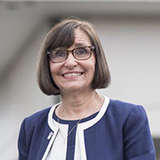Healthcare has become a victim of its own success, with more patients being treated than ever before, and more patients surviving for long periods with multiple comorbidities. This has put an extraordinary strain on those organisations with the responsibility to deliver so called safe and effective care in the current environment. The NHS, founded 70 years ago this year is now struggling to provide the level of service that is expected by its patients and the public. Although the NHS is still top of most of the Commonwealth Fund metrics, it is struggling to maintain the quality of the care it is able to provide in an age of austerity.
How does this affect those of us who work in this creaking system? During my four years as president of the Royal College of Physicians, I visited nearly every Trust in the land. I saw a group of wise, talented doctors, dedicated to the care of their patients, who work continuously to develop their services in an increasingly tight financial environment. They told me that morale is low, and the quality of their work suffering, so that they often cannot sustain the standard of practice that they aspire to. One of their biggest problems is workforce shortages: an issue the RCP continues to highlight. In 2017, only 43% of advertised consultant posts in acute and geriatric medicine were filled. This shortage is more severe, further away from bigger cities.
Morale has suffered. The first-ever strike by junior doctors was a symptom of how poorly valued these young professionals feel. This feeling was fuelled by the Bawa Garba case, which resulted in these doctors, who were already demoralised, feeling unprotected in their working environment, and at risk of not only being removed from the medical register, but of a criminal conviction. The decision by the General Medical Council (GMC) to appeal against the MPTS decision, and erase Hadiza Bawa Garba from the medical register has seriously undermined the profession’s trust in their own professional regulator. The court of appeal has now ruled against the GMC, further undermining the confidence of the medical profession in the GMC.
The definitions of the term professionalism include reference to specialist expertise, but the concept goes beyond this to include standards of behaviour that extend the individual’s moral obligation. The definition of medical professionalism was defined by the Royal College of Physicians in its 2005 report, Doctors in Society, as “a set of values, behaviours and relationships that underpin the trust the public has in doctors.”
What is clear, is that the constant evolution of medicine requires a revision of our understanding of professionalism, so that it is not undermined by intercurrent events. With the changes in the way healthcare is delivered, and doctors are perceived, we need to update what we understand by the term professionalism. The RCP has done this as part of its 500th year celebrations, as a way of encouraging doctors to see that as professionals in 2018, we have a responsibility to maintain our professional pride and integrity. Part of the solution to current issues with the morale of the workforce is to embrace an up-to-date concept of professionalism, and to take responsibility for our own professional future as doctors.
We have defined seven characteristics of professionalism in 2018. Every doctor should embrace these characteristics, and should feel proud to be able to demonstrate them. They are defined as: healer, patient partner, team worker, manager and leader, patient advocate, learner and teacher, and innovator
The RCP’s report, Advancing Medical Professionalism, published this week, outlines where we are in the professionalism journey, and makes a set of recommendations for doctors themselves, for medical royal colleges, for health systems, and for educators, to keep medical professionalism alive and to allow it to thrive in these challenging times.
This reaffirmation of the professional characteristics of a doctor will help us, as doctors, to manage the turbulent environment we find ourselves in, and to assist us in rebuilding our self-worth, and our trust in ourselves as a group of people with expertise, and also a shared set of values that make us feel proud to be a doctor.
Medicine is still a brilliant career, but has been damaged by recent events. A reaffirmation of the special characteristics of the profession will help us to find the magic that we know is there, and comes from the privilege of treating our patients well. As medicine evolves, so does our understanding of what it means to be a professional.
See also: Medical professionalism: a key to a better health system and more satisfied doctors
 Jane Dacre is a professor of medical education, a consultant physician and rheumatologist, and the immediate past president of the RCP.
Jane Dacre is a professor of medical education, a consultant physician and rheumatologist, and the immediate past president of the RCP.
Jude Tweedie is currently a research fellow to the president of the Royal College of Physicians focusing on professionalism, professional identity formation and unprofessional behaviours and is completing an MD in medical education at UCL.
Competing interests: JD has recently been appointed President of the Medical Protection Society.
